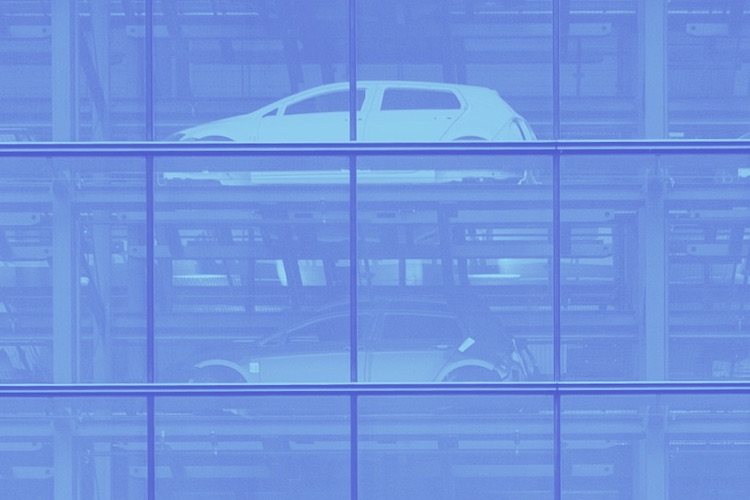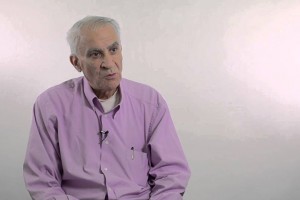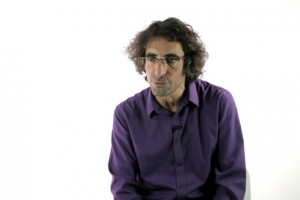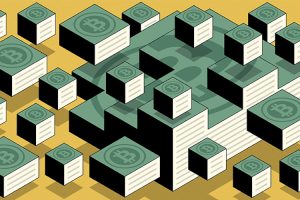Migration State and Welfare State
Economist Assaf Razin on migration policy in the EU and the US, coordinated welfare state, and skilled migrant...

A free market is a market free of government control, regulations, coercion, and force. A free market means freedom to act without coercion in the pursuit of the values we need in order to live and thrive and flourish and prosper. In a free market, people can act without force in order to produce economic values, create and produce wealth. In a free market, the only job of the government is to catch crooks, protect people from fraud, to help arbitrate disputes using a justice system. Government has to define property rights, to make them clear: intellectual property rights and physical property rights. But other than that, the government has no role, no economic policy — it leaves the market alone.
The only job of government in a free market should be to protect individuals: our freedoms, our ability to go out into the world and do what we want to do in pursuit of the values that we need in order to live and thrive. So the government is there to protect individual rights. That is the ideal government, the government that only protects individual rights and does not regulate, does not control, does not tell us what to do in our bedroom and does not tell us what to do in business. A system like that is to protect people who are rational and who want to use their minds in order to live the best. The free market idea says that the more constraints society or government places on you, the more limited scientific research is, the more limited entrepreneurship is, and the more limited human beings’ ability to pursue the things that they think are necessary for their lives is.
The term was introduced in the 19th century in France, and it was called laissez-faire. Laissez-faire means ‘hands-off’. According to this idea, the government is supposed to be ‘hands-off’. But the idea of free markets, the idea of capitalism, and the idea of government that is very limited is a product of the Enlightenment of the 18th century. It goes back to John Locke, who really developed the idea of individual rights, liberty, property, and the pursuit of happiness. In terms of markets, Adam Smith, in The Wealth of Nations (1776), describes what a free market would look like. And there were a lot of thinkers from 1776 till today who refined the model, improved it, and articulated the case for it.

The first thinker to make a model case for free markets and explain why it is right and moral was Ayn Rand. She did that in books like Atlas Shrugged and in nonfiction books like Capitalism: The Unknown Ideal and The Virtue of Selfishness. These were the books that articulated the economic plus the moral case for freedom.
The main thing Ayn Rand added to this idea was the philosophical foundation. A lot of people believed in freedom, but they did not have a moral argument for why they believed in freedom. It is a good idea to be free, but they could not justify it philosophically. This was a weakness because when you cannot justify something philosophically, people who have more fundamental ideas than you do on the other side (let’s say, Karl Marx, who believed in the opposite), is going to win because their ideas are more fundamental. What Ayn Rand provides for the first time is a moral, ethical defense of this idea of freedom. She identifies the fact that freedom is fundamentally about the individual.

There is an example in the movie Braveheart with Mel Gibson. In a part of the movie, they all say: Freedom! But what do they really want? They wanted to be ruled by a Scottish king instead of being ruled by an English king. That is not freedom. That is, you prefer your tribal authoritarian to somebody else’s tribal authoritarian. Real freedom is about not having a king, not having a ruler, not having authority telling you what to do, but you deciding what to do.

The main principles of the free market are:
— Reason is the means by which individuals succeed, achieve their values, and flourish
— Individual human flourishing is the purpose. It is the goal
— In order to achieve individual human flourishing, we must extract force from society
— We must build governments in order to protect us, but otherwise leave us free — that is, to protect us from criminals, terrorists, and invaders and to arbitrate disputes.
So those are really the principles: it is the reason, individualism, individual rights, and freedom. The idea of free markets can really exist. It just needs a different culture other than what we have today in the world. It means new ideas and a different attitude. So what we need in order to achieve freedom is a different attitude about morality, ethics, and right and wrong. What we need is to start focusing on the individual instead of the group and the collective. What we need is to start focusing on what it will take to achieve individual flourishing, rather than ‘How can I sacrifice’, ‘How can I be selfless’. So it needs people to rethink their fundamental beliefs. People’s ideas change all the time. So it is achievable, but it is going to take a long time.
Supply and demand is the law of economics. When people are free, prices are set by the laws of supply and demand. People change how much they demand a good based on its price, which is determined by its supply. And this feedback is changing because constantly the supply is changing and the demand is changing; therefore, the prices adjust. And that is why you go into the marketplace and prices move. They move within a particular spectrum, but over time they change. Sometimes they change dramatically, like oil collapsing because suddenly, people discover that there is much more supply and demand is much smaller than they thought it would be. Supply and demand are the means by which prices are set in the marketplace when it is left free.
Now, regulations can affect supply and demand. But the law of supply and demand, just like the law of gravity, always holds. For example, there is a big debate in the United States about raising the minimum wage. At the federal level, the minimum wage is $7.25. And they want to raise it to $15. So even if you want to work for $8 and even if they want to pay you $8, the law will say they have to pay you $15. Regulations can impose a price like that. They raise the price, so the demand for jobs goes down. If they raise the price artificially, demand goes down, and people get unemployed. If the government raises the price artificially, which is what regulations do, demand and supply adjust. In that scenario, the regulation of prices is not determined by the market; it is determined by external facts by government regulations.
The same story applies to market entry and exit. In free markets, if you can show that you can make money, entry is relatively simple. You can raise capital, go venture capitalists to banks, you can raise capital, and you can start a business. Or you might go out of business if your business is not doing well or if you decide to exit in a different way; for example, you can sell your company. So it is a very dynamic market: people enter the market, leave the market, businesses fail, and businesses are created constantly. There is constant turnover. Once you regulate, you limit the turnover.
In the United States, to start certain businesses, you need a license. There is a barrier to entry because now, some people do not have the time to take the course, and they do not have the money to pay the fee. All the money they have is just to start the business, and now you are not letting them start the business. Entry is constrained. There is the same thing about an exit. The government can now decide to bail out some companies. Again, the decision is not based on the market; it is based on whether a politician or a bureaucrat decides you are worth saving and somebody else is not worth saving. So it adds government, always as the element of the arbitrary. It takes it away from science, supply, and demand and subjects it to the opinion of the central planner.
There are really only two economic systems: there is the free market, or there is socialism, or even communism. Everything else that exists in the world is a mixture of the two. So what we have today in Russia, America, and Europe is some capitalism, some freedom, and some government. All the systems that exist in China, Russia, in America are different. America has a little bit more markets and less socialism; China has more government and just a little bit of markets. Russia is somewhere in between. So it is all variations, but it is either: the state controls everything, or markets control everything, and then we mix the two up.
The idea of the free market is constantly being applied to new areas. So, for example, when the financial crisis happened, we had to come up with an explanation for why it happened. The 2008 crisis is a crisis of regulations and of the state. Free markets would never cause the 2008 crisis because they have to correct mechanisms that would never allow it to get that bad. But when the government is involved, it lets bad things accumulate. For example, in America, there is something like ‘too big to fail’. The government says: if you are a big bank, we will not let you fail. So if you are a CEO of a bank like that, you think that you can take on a lot of risks and get all the rewards, and if something goes wrong, taxpayers will bail you out. That is what happened in 2008. Constantly the people on the free-market side think about how to address the different challenges of what is going on in the world.
It is hard to imagine a world with a completely free market. People would be much richer. We would have such advanced technology. We would love to be a hundred and fifty or older because biotechnology has the capacity, if freed up from regulations and freed up from state control, to really extend human life dramatically. We might have rocket ships going to Mars; we might be colonizing Mars. More importantly than that, there would be no poor people in the world because if you think about the last thirty years, over a billion people have come out of poverty, primarily in Asia, because they have adopted free markets — not complete free markets, but a little bit. The problem in the world today is that there are still a billion or two billion poor people. And free markets would solve that — there would basically be no poor people, not by the standards of today. And people would be responsible for their own lives.
Edited by Liana Khapaeva

Economist Assaf Razin on migration policy in the EU and the US, coordinated welfare state, and skilled migrant...

Economist Itzhak Gilboa on the history of probability theories, predicting the behavior of people, and the lin...

Economist William Luther on the popularity of cryptocurrencies, attitudes toward the blockchain, and the futur...